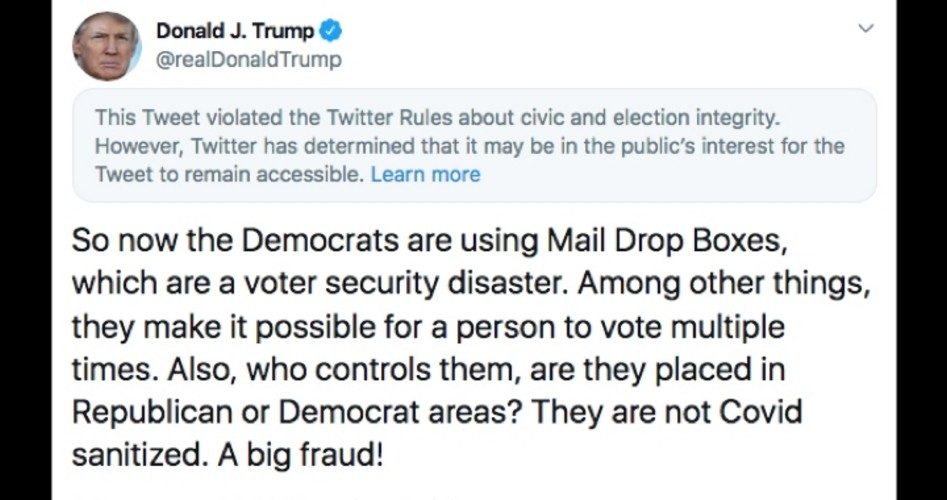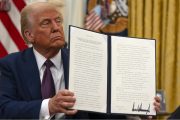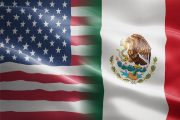
On August 23, Twitter added a label to a tweet shared by President Trump alleging that it promoted misleading claims that “could potentially dissuade people from participation in voting.” This was the second instance in which the social-media company took action against election-related posts shared by the president. The tweet that prompted Twitter’s action read:
So now the Democrats are using Mail Drop Boxes, which are a voter security disaster. Among other things, they make it possible for a person to vote multiple times. Also, who controls them, are they placed in Republican or Democrat areas? They are not Covid sanitized. A big fraud!
In response to that tweet, Twitter place a cautionary message before it, explaining to Business Insider, “We placed a public interest interstitial on this Tweet for violating our Civic Integrity Policy, for making misleading health claims that could potentially dissuade people from participation in voting. We’ve taken action given the Tweet violates our Rules, but have kept the Tweet on Twitter because it is important that the public still be able to see the Tweet given its relevance to ongoing matters of public importance.”
In order to see the president’s tweet, Twitter users must first click past a message from Twitter. Furthermore, users are unable to “like” or comment on the post.
A report from CNN noted that Trump posted the exact same message on Facebook, but the social-media giant has not taken any specific action regarding the post.
The Hill reported that in late May, Twitter added “fact-check” labels to a pair of tweets Trump shared about mail-in voting, noting that this was the first time the company took such a step. Twitter said at the time that they took the step because Trump’s tweets supposedly contained “potentially misleading information about voting processes and have been labeled to provide additional context around mail-in ballots.”
In a May 28 article, we noted that Trump was expected to sign an executive order to address censorship on social-media platforms. (Trump signed the order later that day.) “We’re here today to defend free speech from one of the greatest dangers,” Trump told reporters before signing the document.
“As President, I have made clear my commitment to free and open debate on the internet. Such debate is just as important online as it is in our universities, our town halls, and our homes,” Trump’s order said. “It is essential to sustaining our democracy. In a country that has long cherished the freedom of expression, we cannot allow a limited number of online platforms to hand-pick the speech that Americans may access and convey online.”
“When large, powerful social media companies censor opinions with which they disagree, they exercise a dangerous power,” the order also stated. “They cease functioning as passive bulletin boards, and ought to be viewed and treated as content creators.”
Image: screenshot from Twitter post
Warren Mass has served The New American since its launch in 1985 in several capacities, including marketing, editing, and writing. Since retiring from the staff several years ago, he has been a regular contributor to the magazine. Warren writes from Texas and can be reached at [email protected].
Related articles:



